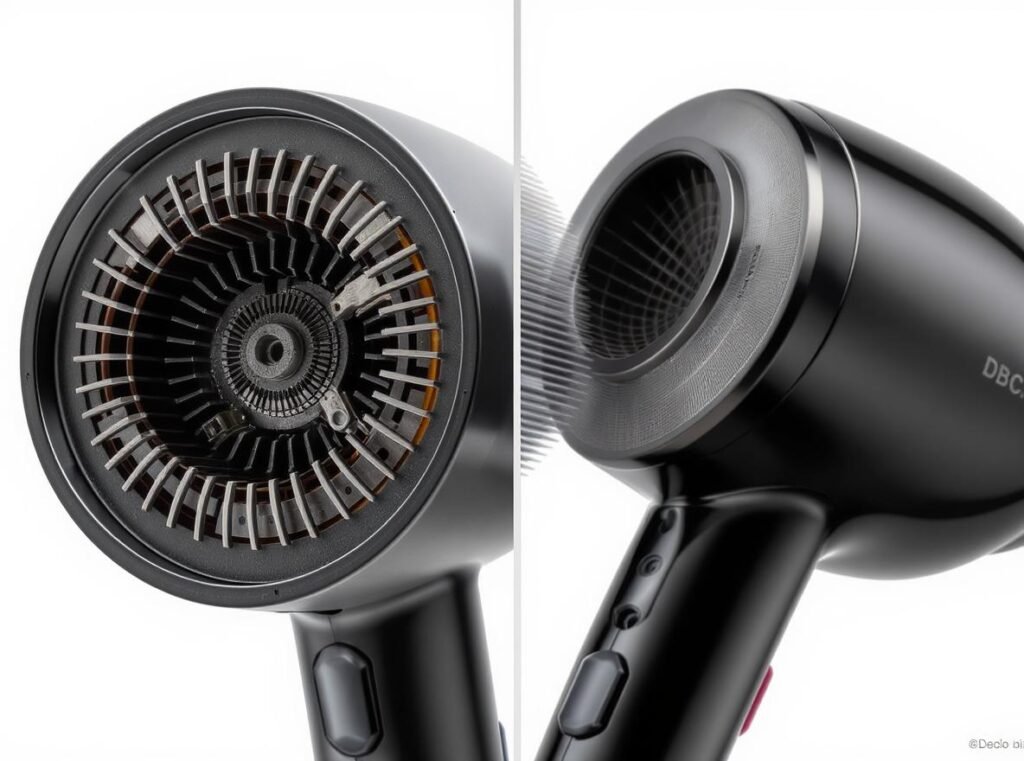You’re researching hair dryers for your business, and suddenly you’re faced with technical jargon about AC and DC motors. The specifications seem confusing, and you’re not sure which type will better serve your customers’ needs.
AC motors use alternating current and deliver higher power with longer lifespan, making them ideal for professional salon use. DC motors operate on direct current, offering lighter weight and energy efficiency, perfect for home users seeking portability and convenience.
But there’s much more to consider when choosing between these motor types for your inventory.
Table of Contents
ToggleWhy Should You Care About Hair Dryer Motor Types?
As a distributor or retailer, understanding motor differences directly impacts your product selection and customer satisfaction. The motor determines drying speed, noise levels, weight, energy efficiency, and lifespan—all crucial factors for both professional and consumer markets.
Motor type determines your hair dryer’s performance, durability, target market, and profitability. Choosing the right hair dryer motor type directly impacts product performance, durability, user satisfaction, and your business’s bottom line.
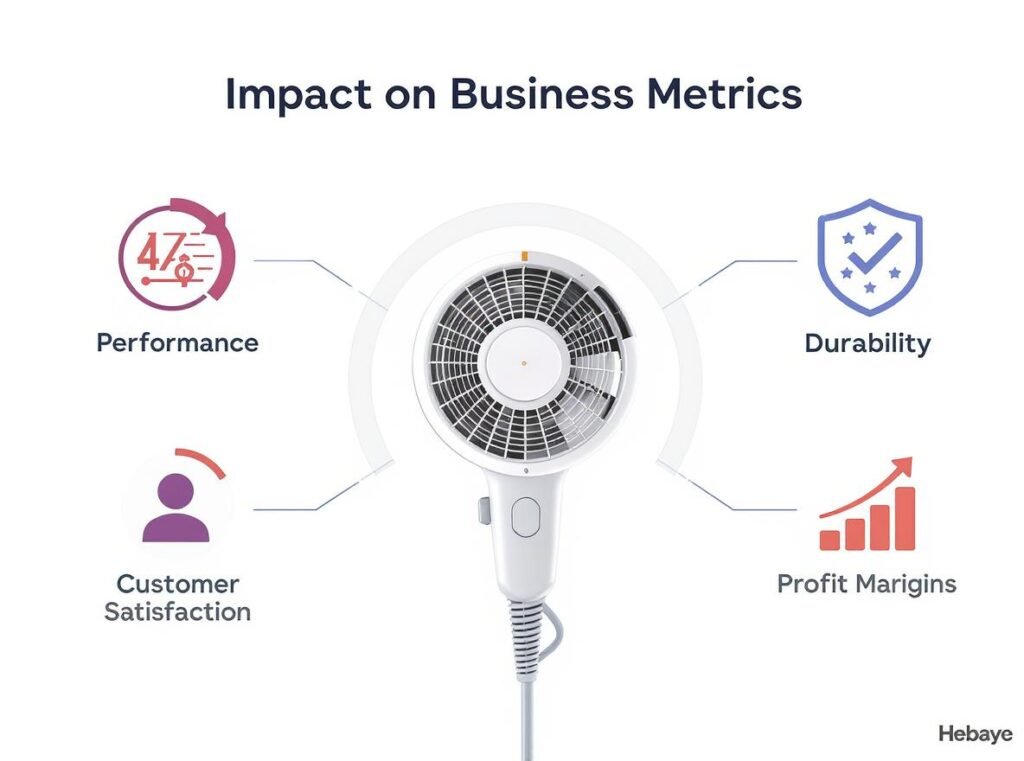
Understanding these differences helps you stock the right products for your specific customer base and optimize your inventory investment for maximum returns.
What Exactly Are AC Motors in Hair Dryers?
AC motors represent the powerhouse option in professional hair styling equipment. These motors have earned their reputation in salon environments worldwide for their robust performance and reliability.
AC (Alternating Current) motors are traditionally used in professional-grade hair dryers, delivering strong airflow for fast drying and providing steady performance with reliable heat distribution. They are powerful, durable, and known for their longer lifespan, making them ideal for heavy, frequent use in salons.
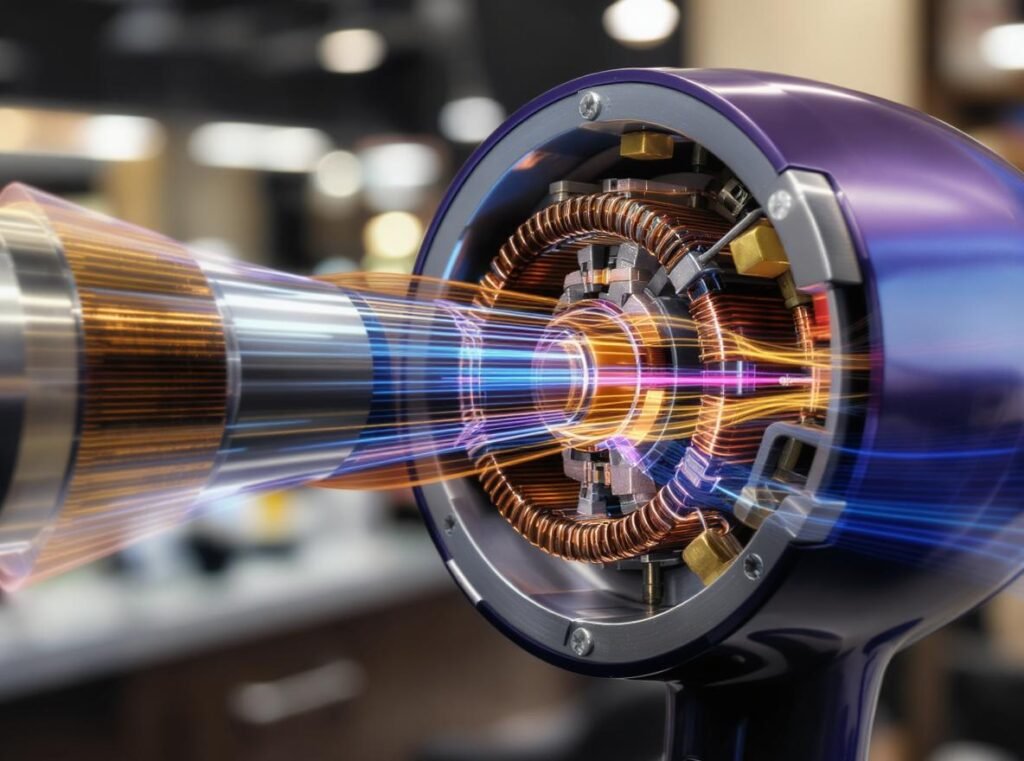
AC motors excel in several key areas that make them valuable for your business:
Professional salons prioritize AC motors because they handle continuous daily use without performance degradation. These motors are more robust and can last up to three times longer than DC motors, making them the preferred choice for professional environments where durability is critical.
The higher power output of AC motors means faster drying times for clients. Professional stylists can complete more appointments per day, increasing their revenue potential. This efficiency makes AC motor dryers a smart investment for salon owners seeking reliable, high-performance equipment.
However, AC motors do have some characteristics that affect their market positioning:
| AC Motor Features | Professional Impact | Business Benefit |
|---|---|---|
| Higher power output | Faster service times | Increased salon productivity |
| Superior durability | Fewer warranty issues | Reduced support costs |
| Consistent performance | Reliable daily operation | Customer satisfaction |
| Heavier construction | Professional feel | Premium positioning |
What Makes DC Motors Different?
DC motors represent the consumer-friendly alternative that’s revolutionizing home hair care. These motors prioritize convenience and user experience while maintaining effective performance for personal use.
DC (Direct Current) motors are common in consumer and travel hair dryers, featuring lightweight design, compact size, and quieter operation that makes them ideal for home use. They are more energy-efficient, often using up to 20% less power than AC motors, and provide more precise control options.
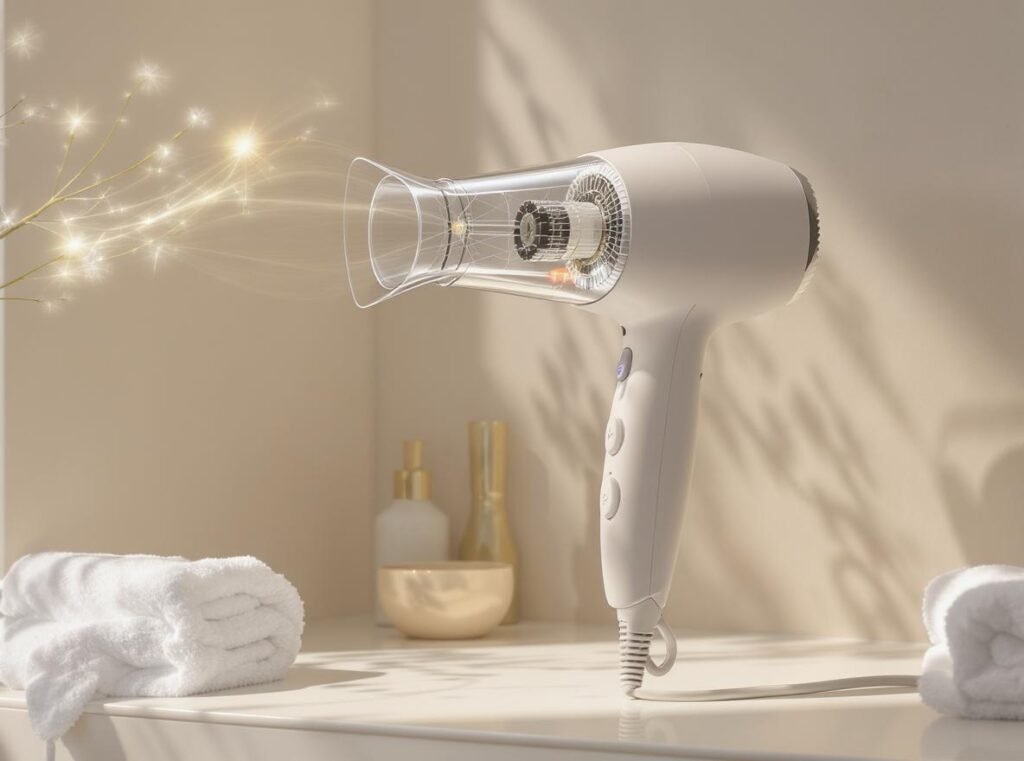
The lightweight nature of DC motors addresses a common consumer complaint about traditional hair dryers. Many users find heavy dryers uncomfortable during extended styling sessions, making DC motors an attractive solution for home users.
Energy efficiency is another compelling selling point for DC motors. These motors are suitable for standard household circuits and appeal to environmentally conscious consumers concerned about electricity costs.
Key advantages of DC motors include:
- Lightweight construction for comfortable handling during use
- Compact design allowing for sleeker, more portable hair dryers
- Quieter operation providing a more pleasant user experience
- Energy efficiency using approximately 20% less power than AC alternatives
- Precise control offering more speed and heat options for customization
However, DC motors do have limitations that affect their market positioning. They tend to have a shorter lifespan and may require replacement sooner, especially under heavy use conditions.
How Do Performance Levels Compare?
The performance gap between AC and DC motors significantly impacts your product positioning and pricing strategies. Understanding these differences helps you match products to customer needs effectively.
AC motors deliver strong, high-volume airflow for fast drying, while DC motors provide focused, fast airflow with better control options but less overall power. This performance difference creates distinct market opportunities for different customer segments.
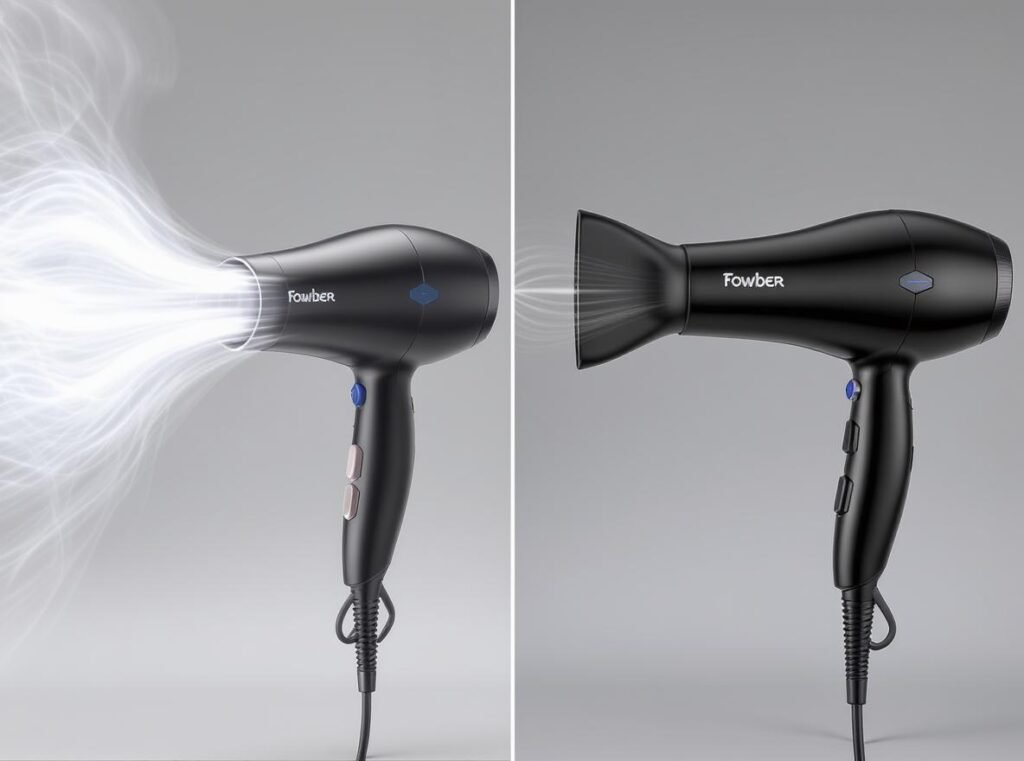
Here’s a comprehensive comparison of performance characteristics:
| Feature | AC Motor Hair Dryer | DC Motor Hair Dryer |
|---|---|---|
| Airflow | Strong, high volume | Focused, fast, but less powerful |
| Drying Speed | Fast, especially for thick hair | Fast for most hair types, very quick with high-speed models |
| Weight | Heavier | Lighter |
| Noise | Louder (but improving) | Quieter |
| Control | Fewer speed/heat options | More precise control |
| Durability | Longer lifespan | Shorter lifespan |
| Energy Use | Higher | Lower |
AC motors excel in professional environments where speed and power matter most. They’re particularly effective for thick or coarse hair that requires strong airflow and consistent heat distribution.
DC motors shine in home environments where comfort and convenience take priority. They’re perfect for users who want lightweight handling, quiet operation, and precise control over their styling experience.
The performance trade-offs create distinct market segments that allow you to serve different customer needs with appropriate product recommendations.
Which Motor Type Lasts Longer?
Durability directly affects your warranty costs and customer satisfaction rates. The lifespan difference between motor types is substantial and impacts your business planning significantly.
AC motors are more robust and can last up to three times longer than DC motors, making them the preferred choice for professional environments where durability is critical. This longevity translates to better value for professional customers and fewer warranty claims for your business.
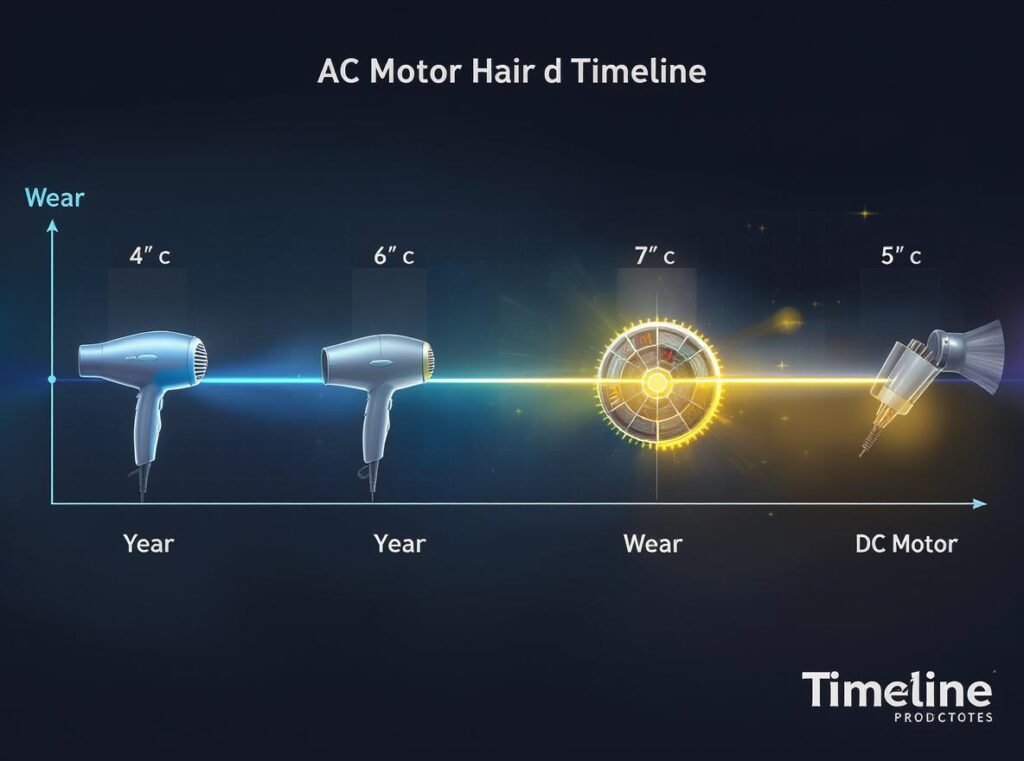
This durability difference affects your inventory strategy in several important ways:
Professional customers expect long-lasting equipment that justifies their investment. AC motors meet these expectations by providing consistent performance over extended periods, reducing your service calls and warranty obligations.
Consumer customers might prioritize initial cost over longevity, but educating them about lifespan differences can justify higher-priced AC motor options for customers seeking long-term value.
The lifespan considerations include:
- AC Motors: Multi-year professional lifespan with proper maintenance
- DC Motors: Suitable for lighter, less frequent use but may require replacement sooner
- Professional Use: AC motors essential for daily salon operations
- Home Use: DC motors adequate for occasional styling with proper care
Understanding these durability differences helps you set appropriate expectations with customers and position products correctly in your market segments.
What About Noise Levels and User Experience?
Noise levels significantly impact customer satisfaction and product reviews. Understanding these differences helps you set proper expectations and match products to customer preferences.
DC motors are generally quieter, providing a more pleasant user experience, especially in home or shared spaces, while AC motors can be noisier but recent advancements have reduced noise in some models. This noise difference affects customer perception and product positioning strategies.
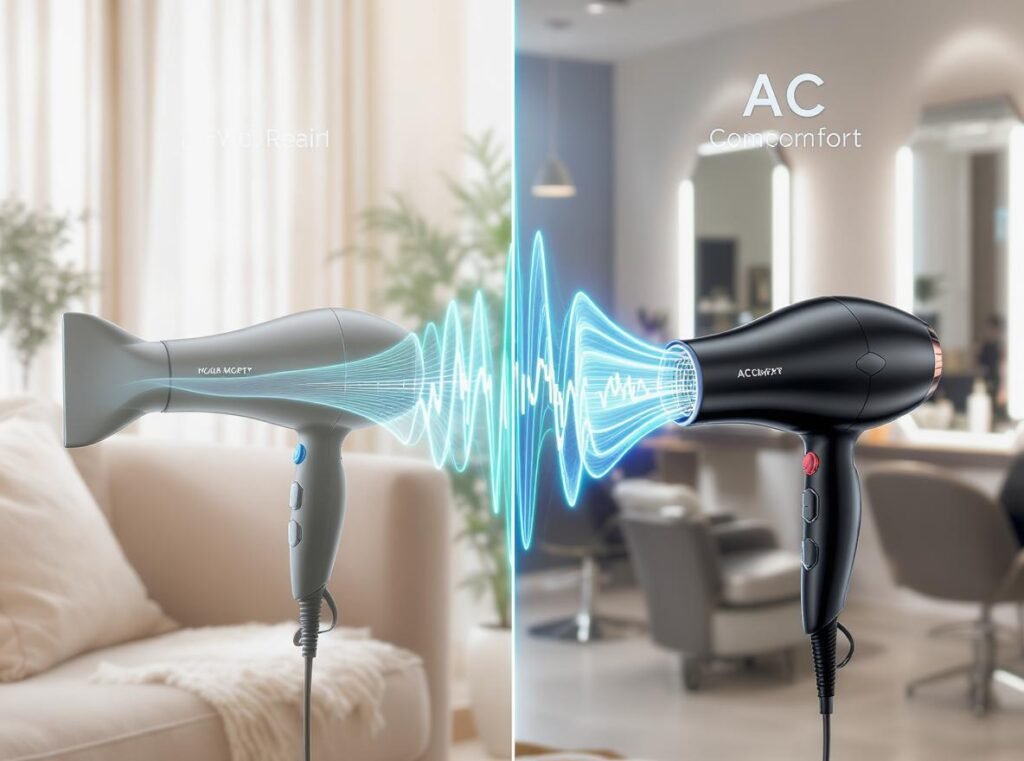
The noise characteristics impact different market segments in various ways:
Home users particularly appreciate quieter DC motors because they create a more peaceful environment during personal styling routines. This quiet operation is especially important for early morning or late evening use when noise consideration matters most.
Professional environments have different noise tolerance levels. While AC motors tend to be louder, salon clients often expect some noise as part of the professional experience, and the faster drying times offset any noise concerns.
Consider these noise factors when advising customers:
- DC Motors: Ideal for residential use where noise reduction is prioritized
- AC Motors: Acceptable for professional environments focused on performance
- Customer Education: Explain noise trade-offs versus performance benefits
- Product Positioning: Market quiet operation as a premium feature for home users
How Do Power Requirements Differ?
Power requirements affect operating costs and electrical compatibility, important factors for your international customers and energy-conscious buyers.
AC motor dryers typically require more power (often 1800–2400W), which can mean higher energy consumption, while DC motor dryers are more energy-efficient, often using 20% less power and suitable for standard household circuits. This power difference impacts both operating costs and electrical infrastructure requirements.
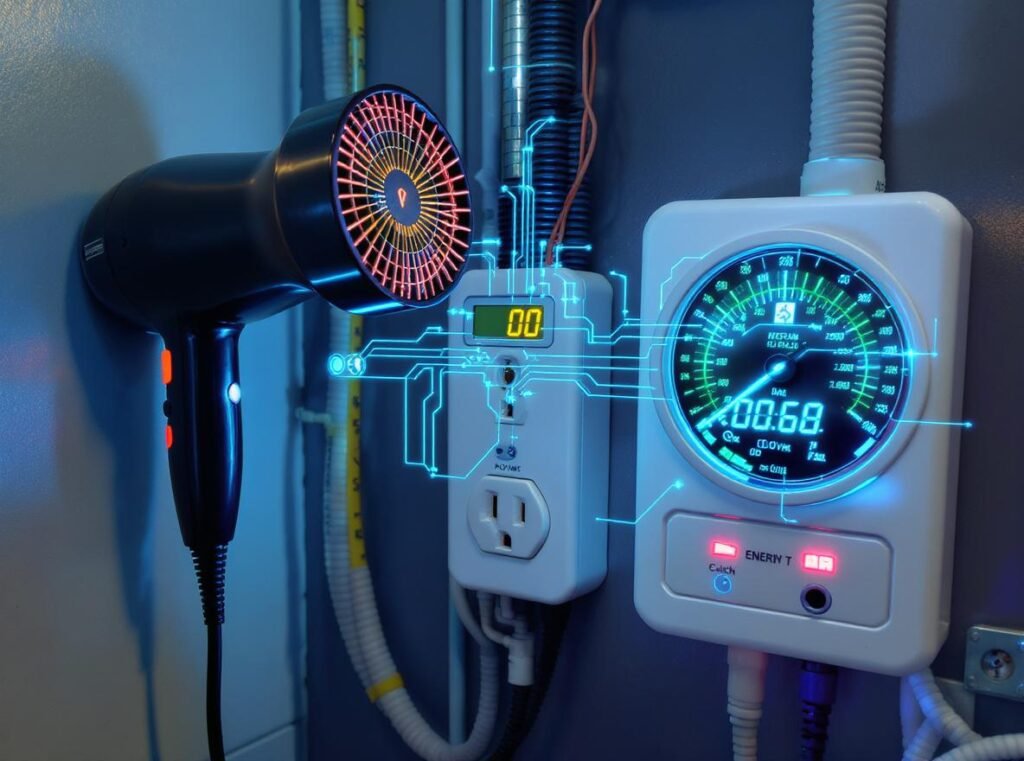
The power consumption differences create important considerations for different market segments:
Professional salons often have robust electrical systems capable of handling higher wattage equipment. The increased power consumption of AC motors is justified by their superior performance and faster service times.
Home users benefit from the energy efficiency of DC motors, which reduce electricity costs and work well with standard household electrical circuits without requiring special installation considerations.
Key power-related factors include:
- AC Motors: Higher power consumption but superior performance output
- DC Motors: Energy-efficient operation with lower electrical requirements
- Professional Use: Robust electrical systems support high-wattage equipment
- Home Use: Standard circuits accommodate DC motor efficiency requirements
Understanding these power requirements helps you advise customers on electrical compatibility and operating cost implications for their specific situations.
What Are the Cost Implications for Your Business?
Cost differences between motor types affect your pricing strategy and profit margins significantly. Understanding the total cost of ownership helps you position products appropriately.
AC motor dryers have a higher upfront cost due to their robust build and longer lifespan but may save money over time by reducing replacement frequency, while DC motor dryers are less expensive initially but may incur higher long-term costs due to shorter lifespans. This cost structure impacts your business model and customer education strategies.

The comprehensive cost analysis includes several important factors:
Initial investment costs vary significantly between motor types. AC motor dryers command higher retail prices but also provide higher profit margins, while DC motor dryers enable competitive pricing in consumer markets.
Long-term value propositions differ substantially. AC motors reduce replacement frequency and warranty claims, while DC motors may require more frequent replacement but satisfy budget-conscious customers.
Consider these cost factors when planning your inventory:
- Initial Investment: AC motors require higher upfront costs but deliver professional value
- Warranty Costs: AC motors typically generate fewer warranty claims and service calls
- Customer Lifetime Value: Professional customers often make repeat purchases and referrals
- Market Positioning: Price points affect your competitive positioning in different segments
There’s also a premium category to consider: Brushless DC motors offer high efficiency, long life, and quiet operation but come at a premium price point, creating opportunities for high-margin, tech-savvy customers.
Which Motor Type Should You Stock?
Your inventory decisions should align with your target market and business objectives. Understanding your customer base determines optimal motor type selection for maximum profitability.
For professional use, stock AC motor hair dryers for their power, durability, and reliability, while offering DC motor dryers for lightweight, affordable, and travel-friendly options in consumer markets. Strategic inventory management requires understanding different market segments and their specific needs.
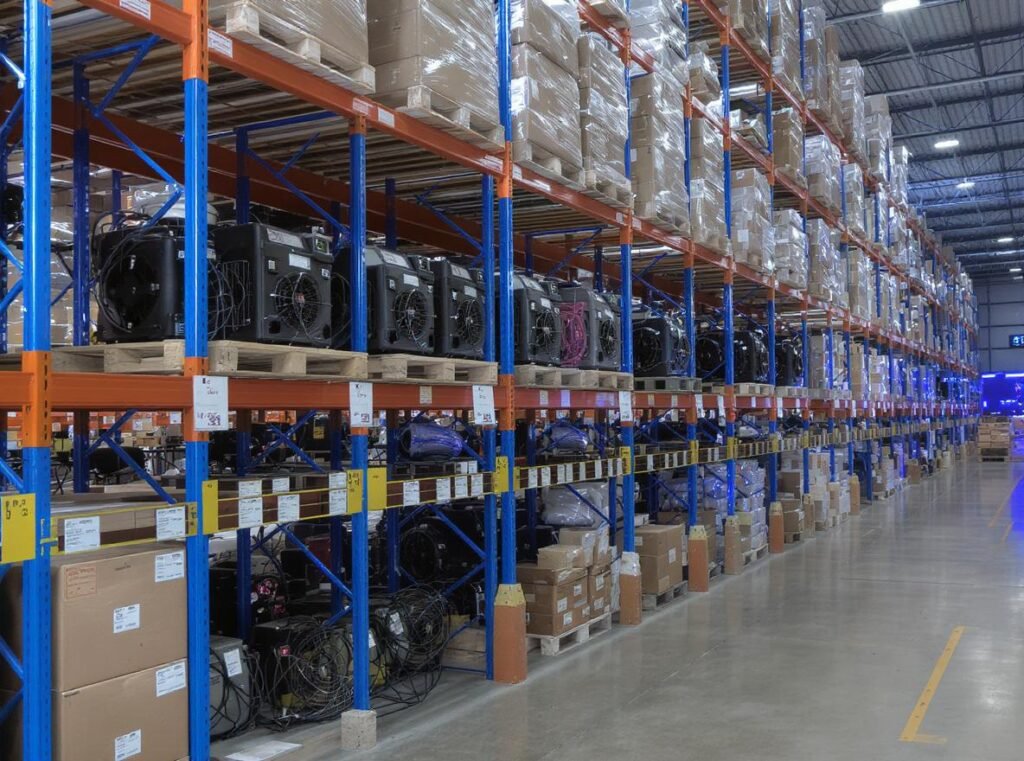
For Professional Use (Salons):
- Stock AC motor hair dryers for their superior power, durability, and reliability
- Consider brushless DC motor dryers for premium, high-speed, and quiet performance
- Focus on models that can handle continuous daily use without performance degradation
For Consumer/Retail:
- Offer a balanced mix to serve different customer preferences and budgets
- DC motor dryers for lightweight, affordable, and travel-friendly options
- AC motor dryers for customers seeking salon-quality results at home
- Brushless DC models for tech-savvy or premium buyers seeking the latest features
Strategic Inventory Recommendations:
| Use Case | Recommended Motor Type | Key Benefits | Target Customer |
|---|---|---|---|
| Professional | AC / Brushless DC | Power, durability, reliability | Salons, stylists |
| Home/Travel | DC | Lightweight, affordable, quiet | Consumer, travel users |
| Premium/Tech | Brushless DC | Fast, efficient, ultra-quiet | Tech-savvy, premium buyers |
For wholesalers and distributors looking to expand their hair dryer inventory, consider exploring our complete product collection which includes both AC and DC motor options to serve all market segments. Our P1C high-speed hair dryer represents advanced DC motor technology, combining lightweight design with professional-grade performance that bridges both consumer and professional market segments.
Understanding hair dryer motor types helps you match products to customer needs, optimize inventory investment, and maximize business value across different market segments.
Summary
AC and DC motors serve different market segments with distinct advantages that impact your business strategy. AC motors excel in professional environments through superior power, durability, and reliability, making them ideal for salon use despite higher initial costs. DC motors appeal to home users seeking lightweight, energy-efficient, and quieter solutions at more affordable price points. Understanding these differences helps you stock appropriate products for your target customers, optimize inventory investment, and maximize profitability across different market segments.

Ready to expand your hair dryer product line with the right motor types for your market? Contact us today to discuss wholesale pricing and discover how our comprehensive motor technology range can enhance your business offerings and customer satisfaction.

